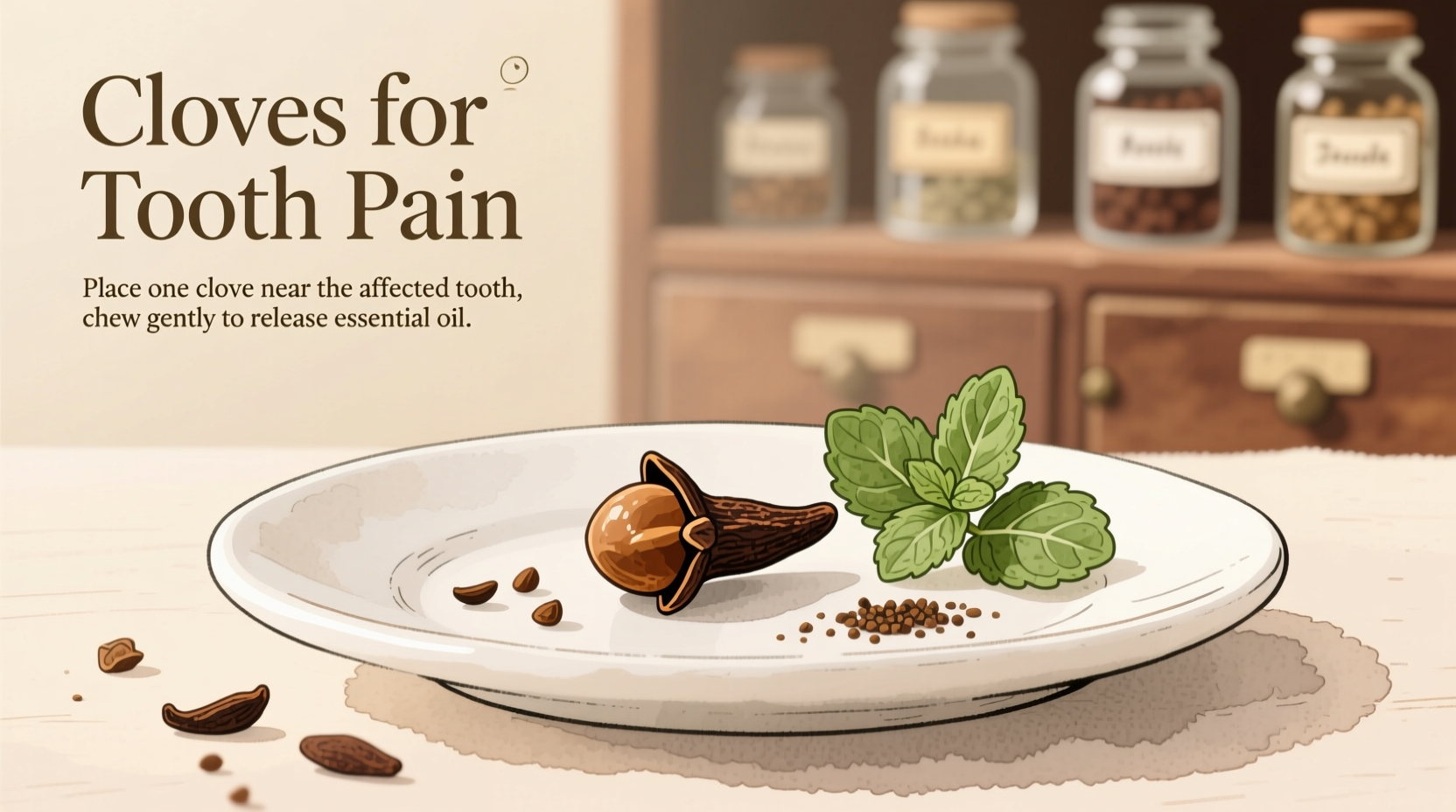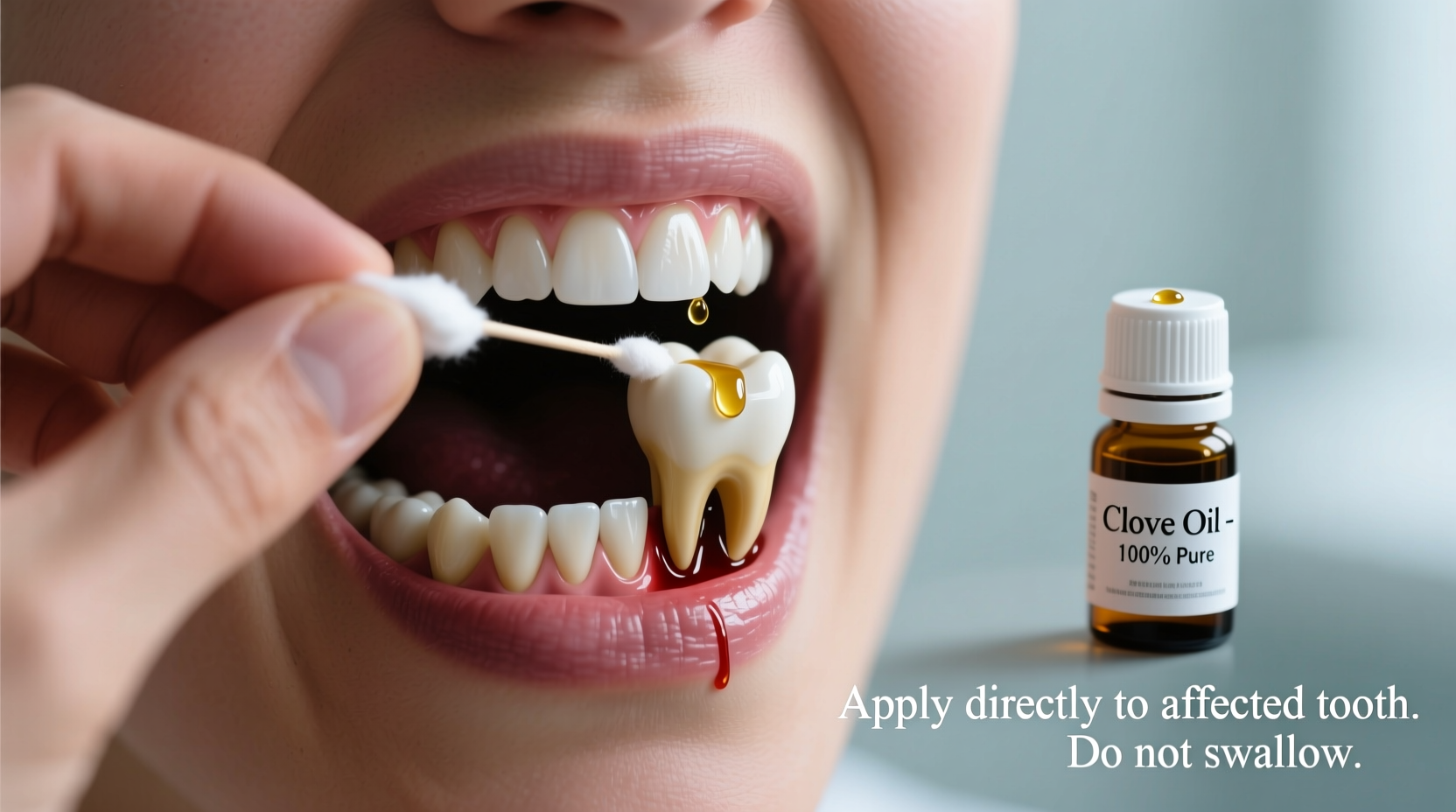Why Toothaches Demand Immediate, Cautious Relief
Sudden tooth pain disrupts daily life, driving 68% of sufferers to seek immediate home remedies before dental visits (American Dental Association). While cloves aren't a cure, their eugenol content provides scientifically backed temporary relief. Misuse risks oral tissue damage—understanding proper application separates effective aid from dangerous experimentation.
The Science: How Eugenol Targets Dental Pain
Eugenol, constituting 70-90% of clove oil, acts as a natural anesthetic by blocking pain receptors and reducing inflammation. Clinical studies confirm it reduces dental pain intensity by up to 70% within 10-15 minutes of correct application (Healthline). Unlike over-the-counter gels, cloves lack numbing chemicals like benzocaine, making them suitable for those with chemical sensitivities—but only when used precisely.
| Method | Effectiveness | Application Time | Safety Notes |
|---|---|---|---|
| Diluted clove oil (1:5 ratio) | High (70% pain reduction) | 10-15 minutes | Minimal irritation risk when diluted |
| Whole cloves | Moderate (30-40% relief) | 20-30 minutes | Chewing causes tissue damage; place only |
| Undiluted clove oil | Unpredictable | Immediate burns | High risk of chemical burns; avoid |
Step-by-Step Application Guide
Follow these evidence-based methods for safe relief:
- For clove oil: Mix 1-2 drops with 1 teaspoon carrier oil (olive or coconut). Soak a cotton ball, press gently against the painful tooth for 5 minutes. Repeat max twice daily (WebMD).
- For whole cloves: Place 1-2 intact cloves near the affected area (not on gums). Suck gently to release oils—never chew. Replace when flavor fades.

When to Use vs. When to Avoid Cloves
Clove therapy has critical boundaries. Use only for:
- Mild, temporary pain from minor irritation (e.g., food stuck)
- As a bridge to dental care when immediate appointment isn't possible
Avoid cloves entirely if you:
- Have open sores, infections, or exposed nerves (Mayo Clinic)
- Experience swelling, fever, or pus (signs of abscess requiring antibiotics)
- Are under 5 years old or pregnant (insufficient safety data)

Top 3 Misconceptions Debunked
Misconception 1: "More oil means faster relief."
Reality: Undiluted oil causes chemical burns. Stick to 1-2 drops per teaspoon carrier oil (WebMD).
Misconception 2: "Cloves cure infections."
Reality: Eugenol only masks pain; it doesn't treat bacterial causes. Untreated infections can spread to the jaw or bloodstream.
Misconception 3: "Chewing cloves intensifies relief."
Reality: Chewing releases abrasive particles that damage enamel. Always use whole cloves intact.
Final Recommendations
Use cloves strictly as a 24-hour pain bridge while scheduling dental care. Never exceed two applications daily. If pain persists beyond 48 hours, seek professional help—delaying treatment risks irreversible damage. Remember: cloves address symptoms, not causes like cavities or gum disease.

Everything You Need to Know
Yes. Undiluted clove oil can cause chemical burns to gums and oral tissue, leading to long-term sensitivity or scarring. Always dilute 1-2 drops per teaspoon of carrier oil as per WebMD guidelines. Discontinue use if burning persists beyond 5 minutes.
Relief lasts 2-4 hours based on clinical observations (Healthline). Reapplication is limited to twice daily to prevent tissue irritation. This temporary window should be used solely to schedule professional dental care—not as ongoing treatment.
Yes. Choose 100% pure clove oil with eugenol concentration labeled (70-90% is standard). Avoid products with synthetic additives—these increase irritation risk. For whole cloves, select unbroken buds with strong aroma; stale cloves have reduced eugenol efficacy (USDA spice guidelines).
Seek immediate dental care if you have fever, facial swelling, or pus—these indicate infection that cloves cannot treat. Also consult a dentist if pain lasts over 48 hours, as masking symptoms delays critical interventions like root canals (Mayo Clinic).
No. The American Academy of Pediatric Dentistry advises against clove use for children under 5 due to choking hazards and unproven safety. For older children, use only diluted oil under adult supervision and consult a pediatric dentist first.










 浙公网安备
33010002000092号
浙公网安备
33010002000092号 浙B2-20120091-4
浙B2-20120091-4